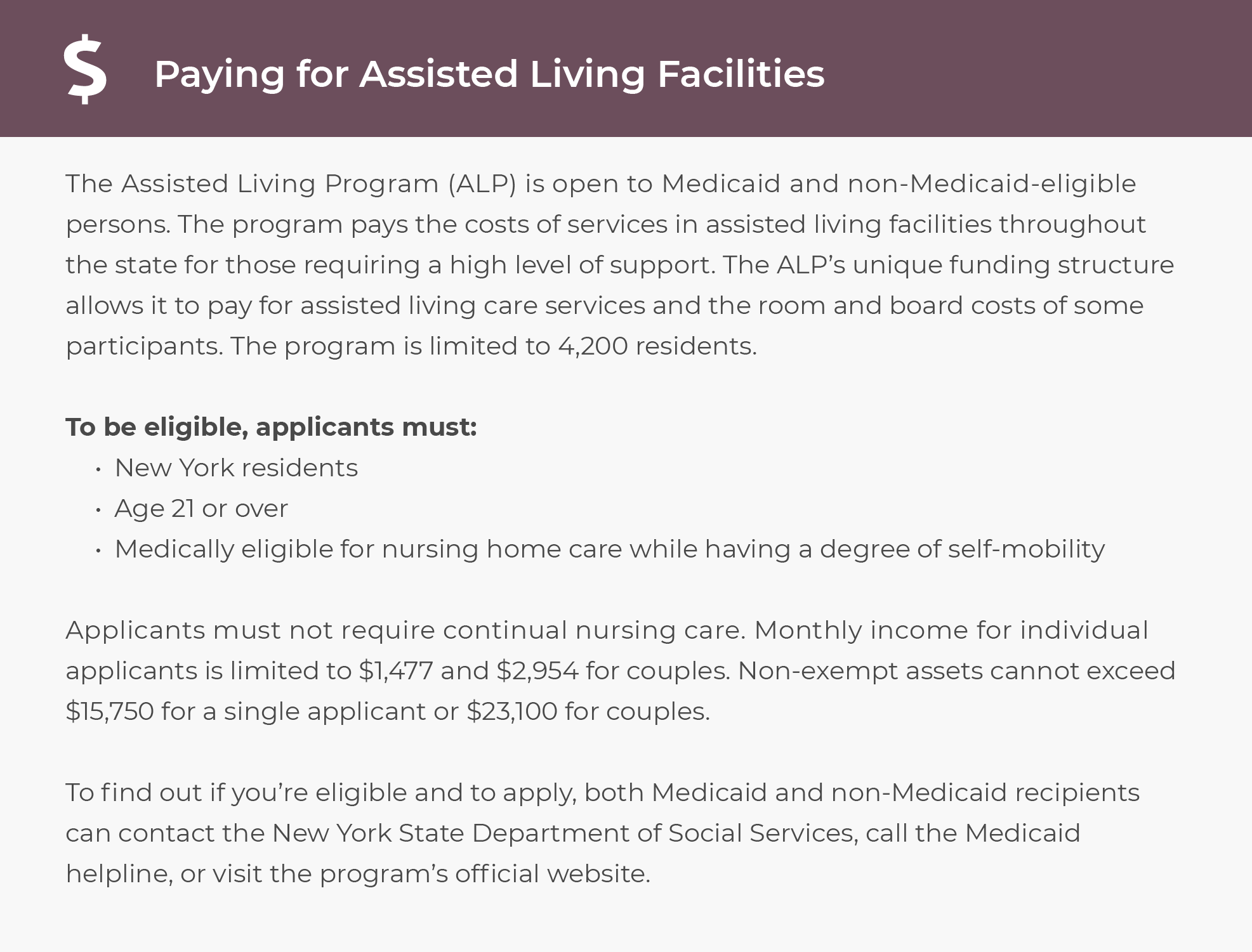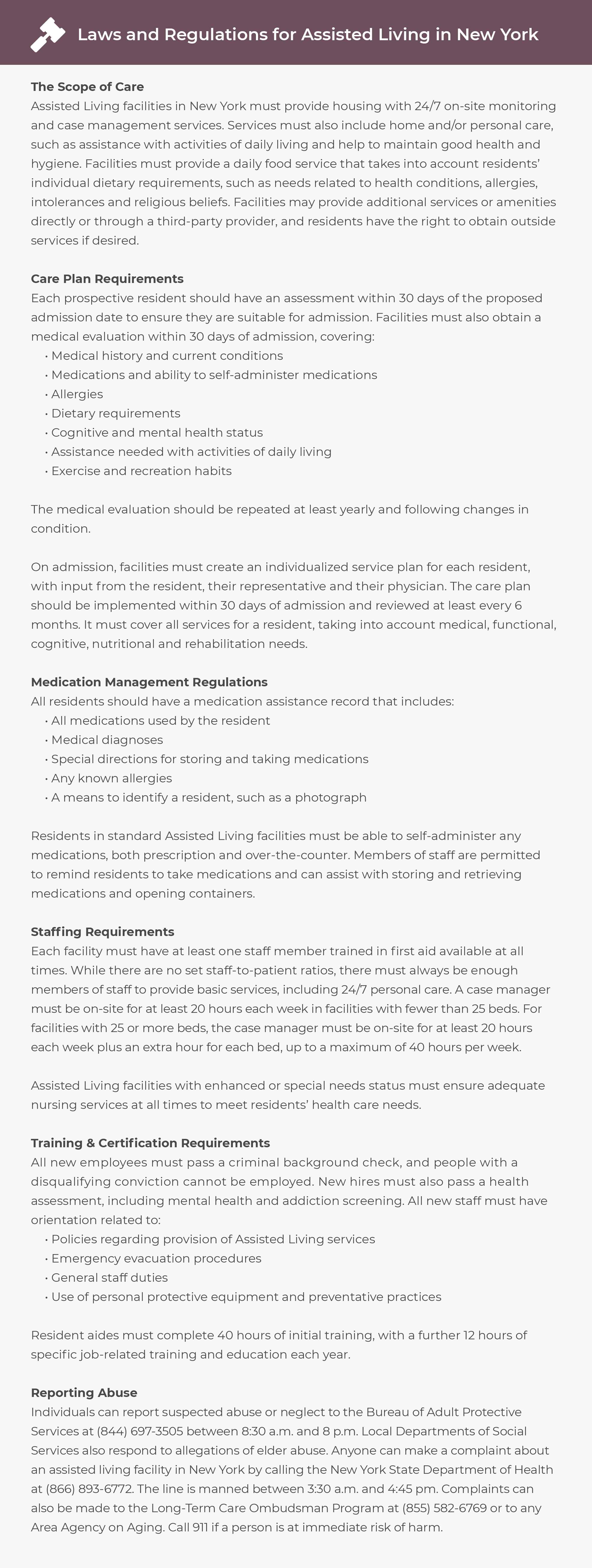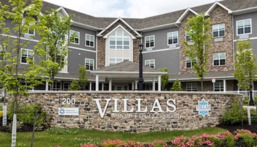Staten Island is separated from New York City to the northwest and from New Jersey to the east by two tidal straits. The island is triangular in shape and is connected to Manhattan by ferry and to New Jersey by several bridges. It’s a nature lover’s paradise as it consists of thousands of acres of parkland and state land, as well as greenbelt and blue belt parks that boast plentiful wildlife including white-tailed deer and abundant bird species.
An assisted living facility is ideal for seniors who can live independently, but require some support and help with their activities of daily living. Staten Island has many assisted living facilities to suit every budget. According to the Genworth 2021 Cost of Care Survey, assisted living in Staten Island is a bit expensive and priced at $5,750 per month — much more than the state and national average.
This guide provides information about the local care costs, financial assistance options and local laws to help seniors choose the best care option for them.
Hundreds of thousands of American seniors utilize assisted living, a figure that is only growing. For these seniors, assisted living combines residential housing,assistance in daily activities, and some healthcare. These communities also strive to provide an atmosphere that is comfortable and engaging for their residents… Read More >
COVID-19 restrictions and rules for Assisted Living Facilities are typically set by the state – to see the rules in your state, you can read our guide to Assisted Living in New York. Keep in mind that there may be other policies that communities put in place to protect their residents, so you should contact your local community for more information. Additionally, you can contact your local Area Agency on Aging to learn more – find contact information here.
Staten Island’s average cost of assisted living is $5,750 per month.
Staten Island shares its monthly average of assisted living costs with the New York Area at $5,750 per month. This cost is much higher than the state average of $4,580 and $1,250 more than the national average of $4,500.
Seniors looking for more affordable assisted living care can find assisted living facilities in the Poughkeepsie area and Glens area, where seniors pay $4,770 and $4,250 per month for similar services. Elmira’s monthly care costs are $150 cheaper than Staten Island’s. While assisted living in Staten Island is expensive, it is still over $2,300 less than the monthly average of Ithaca and $2,665 lower than Watertown Area, which has the highest cost for assisted living in the state at $8,415.
Note: Data for Staten Island was unavailable, so data for the nearest city, the New York area, was used instead.

Since not everyone can afford to pay for assisted living out-of-pocket, it’s important to find alternative methods to help make assisted living more affordable. Some of these options include:
For more information about your options for making assisted living more affordable, visit our guide to Assisted Living in New York.
| Contact | Description | |
| Community Agency for Senior Citizens, Inc | (718) 981-6226 | Community Agency for Senior Citizens is an organization that assists seniors by providing them with a wide range of information, support and referral services. Its Case Assistance program assists seniors in accessing all the benefits that they are entitled to. The Agency’s Crime Assistance program supports senior crime victims and assigns a designated staff member to assist in gathering information from seniors while its Elder Abuse program also provides assistance, counseling, advocacy, support groups and lock replacement services for senior victims of crime. CASC additionally assists seniors by providing transportation to residents of Staten Island. |
| RSVP/S.E.R.V.E. | (718) 494-3222 | RSVP/S.E.R.V.E. is a program that was formed on Staten Island more than 50 years ago and that is now one of the largest senior volunteer programs in the U.S. The organization has 4,000 senior volunteers in the New York area and more than 500,000 volunteers across the country. Its purpose is to improve the quality of life of seniors by enlisting their help in serving the needs of nonprofit agencies, hospitals, nursing homes, Meals on Wheels and other community organizations. |
| The Jewish Community Center of Staten Island | (718) 475-5290 | The Jewish Community Center of Staten Island offers services to people of all ages that help to improve their quality of living. Its two senior centers strive to help those in need as well as to provide educational and recreational opportunities to attendees. Programs that the centers offer include health management, recreation, physical exercise and transportation services. |
| NYC Department for the Aging | (212) 244-6469 | NYC Department for the Aging has partnered with hundreds of community-based organizations to ensure the dignity and quality of life of older adults. The DFTA network offers programs over the phone and through video platforms that include fitness, art and technology classes. It also offers a call line for those who would like to communicate with a counselor on matters such as stress, depression and anxiety. DFTA operates an Elderly Crime Victims Resource Center that assists older victims of crimes such as financial and physical crime, as well as emotional abuse and neglect. The organization also provides transportation to medical and social service appointments, as well as volunteering opportunities for seniors who wish to give back. |
| Anderson Avenue Senior Center | (718) 448-5757 | Anderson Avenue Senior Center aims to promote healthy aging and the well-being of seniors through its diverse range of activities. Its programs provide members with nutritious freshly-made meals, exercise, arts and cultural programs, recreational activities and health services. Transportation to and from the center is provided and social service case assistance is available to assist members in obtaining benefits and services. |
Assisted Living Facilities in the Staten Island area are required to follow a set of rules and regulations that are determined at the state level. For an overview of those rules and regulations, see the information below. For more specific information, talk with your local community or Area Agency on Aging.































